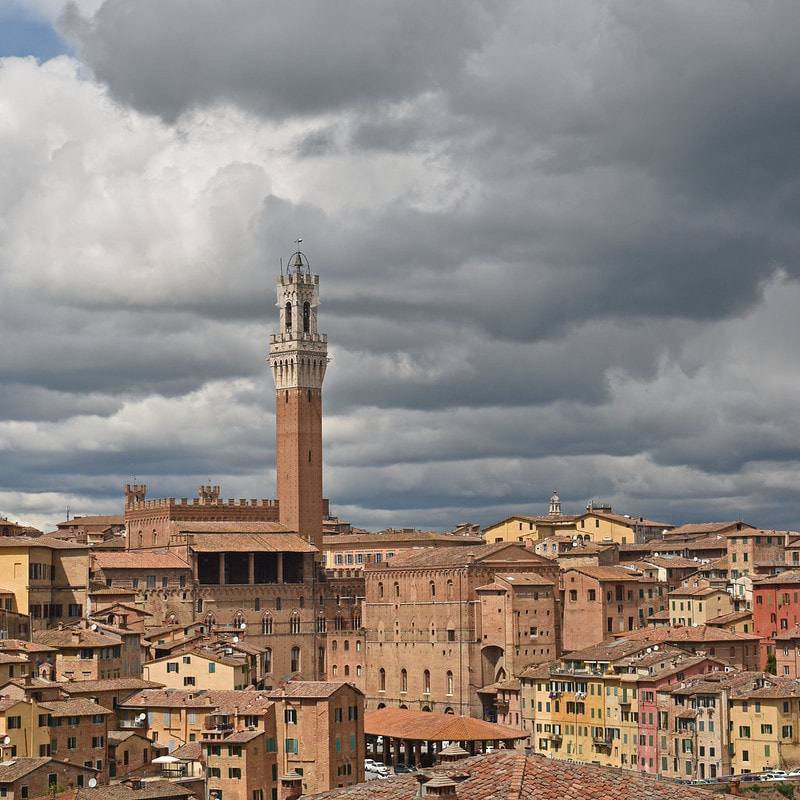- Home
- English to Italian Translation Services
-
FREE RESOURCES
-
Citizenship by Descent: Free Guide
>
- 5 Benefits of Italian Dual Citizenship
- 14 Documents Needed for Italian Dual Citizenship [Free Checklist]
- Citizenship by Descent: Get it in ITALY
- Gaining Italian Citizenship via Female Ancestors
- Italian Dual Citizenship: Get it Through the Courts
- Reacquisition of Italian Citizenship
- Price of Italian Citizenship: How Much Will it Cost?
- How long does it take to get Italian citizenship?
- Citizenship by Marriage >
- Canadian-Italian Dual Citizenship
-
Citizenship by Descent: Free Guide
>
- Blog
- Contact
- Coaching for Translators
|
Let's go on with our series to get Italian citizenship in 2021, talking about where to apply. As usual, information comes from the Tapatalk forum. But I had also talked about it in other posts that I'll link to down below.
Determine the consulate at which you must (or can) apply. If you reside outside Italy, you can only apply at the consulate (or embassy) that covers the place where you live. However, each consulate sets its own requirements for what constitutes proof of residence, so you may be eligible to apply at more than one consulate if you have evidence, satisfactory to each consulate, that you reside within their jurisdiction. For example, a university student often may be able to apply either at the consulate that covers the student's home state, using the parents' home address, or at the consulate that covers the state where the school is. Typical acceptable proof of residence would be a drivers' license (or non-driver ID) and a utility bill, or sometimes a bank statement. Some consulates have become more strict about this in recent years - for example, NY now insists on a utility bill instead of a bank statement. If you are a resident, but not citizen, of a foreign country (i.e., not Italy), a consulate in the country where you reside may tell you that you have to apply in the country where you are a citizen. This is not correct, although if your residence is only temporary it is probably better to apply in your home country than to argue. Even if you can apply at more than one consulate, it is probably best to actually only apply at one at a time; that is, if your application is accepted at one consulate, do not apply at another without first withdrawing your application from the first. However, if your application was not accepted at the first consulate, you are free to apply at any other consulate that considers you to reside in its jurisdiction. In any event, if you have the possibility to apply at multiple consulates, there is no harm in scheduling simultaneously appointments at multiple consulates and then canceling unneeded ones later. You may apply at a comune in Italy if you actually establish residence there, rather than just visiting on a tourist visa. This may be any comune - it doesn't have to be the one from which your ancestors came. While it is usually the case that one does not have any choice in where one can apply, in situations where an applicant does, this is a very important consideration that can impact the rest of the process greatly. Wait times to get an appointment or to be recognized, required documents, acceptable and unacceptable discrepancies, whether one needs to go through the time and expense of a court order, which documents need to be apostilled or translated (and by whom), and even whether one is considered to qualify or not can all depend on the place (consulare or comune) at which one applies. Let's take translations. If you're applying in Italy, it's best to have your documents translated in Italy, period. In my experience, translations brought from other countries usually lack something (like translation of the apostille, which is required in Italy). They often lack an apostille on the translation itself (which is why an Italian comune would not accept it in the first place). You can ask quotes from translators everywhere in Italy, the place where translations are certified is not important. If you're not sure what to expect and how this process works, read these posts: Official Translations in Italy Apply in Italy or abroad: how to choose How does translation work? Still got doubts? Just write me! Let's continue our series on Italian citizenship. Today we talk about losing citizenship. For the full article, see this link.
If you're interested in Part 1 and 2, read here. Losing citizenship Italian citizenship can be lost in the following ways:
How can you use this information in practice? Start with your last Italy-registered ancestor (LIRA). Check that by the time the next person in your line was born your LIRA ha not lost his Italian citizenship (reasons include: naturalization, marriage - for women -, moving abroad as a child). If your LIRA has not lost his citizenship, then the next person in your line is an Italian citizen. Rinse and repeat for all the people in line up to you. Why do you need to know if someone in your line lost citizenship? The main reasons for losing citizenship is through naturalization. Therefore, your line may be failing for these reasons: 1) your LIRA naturalized as a citizen of another country (usually your home country) before the birth of the next person in line 2) your LIRA naturalized as a minor, and his father or mother did too 3) someone in your line's father naturalized before 7/1/1912 4) someone in your line was born after 1948 from an Italian mother, but not an Italian father 5) an Italian woman in your line married to a non-Italian man and got his citizenship, before 1948 and before the birth of the next person in line 6) the husband of an Italian woman in your line naturalized before 1948 and before the next person in line After examining the above rules and your family history, you can arrive at one of the following conclusions:
Continuing our series about getting Italian Citizenship by Jure Sanguinis in 2020, let's try and understand how to determine if you qualify.
For full information, see this link. The principles of Italian citizenship are the following: I. Acquiring citizenship:
C. Before 27 April 1983, foreign women automatically became Italian citizens upon marriage to an Italian man. D. Of course one can also naturalize as an Italian citizen, but in that case there would be a record of the naturalization in Italy already and the recognition of that person's citizenship would be unnecessary. E. Italian citizenship could be reacquired by an adult who previously lost it by returning to Italy and residing there for 2 years, or renouncing any foreign citizenship and returning to reside in Italy within 1 year of the renunciation. F. A non-emancipated minor child of a man who acquired or reacquired Italian citizenship would automatically acquire Italian citizenship as well, so long as the child was not both living abroad and possessing a foreign citizenship. N.B.: Mere birth in Italy does not confer citizenship (unless the parents are unknown), so in principle a birth certificate from Italy does not necessarily prove that someone was an Italian citizen. Are you applying in Italy ad need help with your translations? You're in the right place! Just shoot me an email ;) A new year has begun. Wouldn't it be great if you got your Italian citizenship by the end of 2020?
If you're new to the process and don't know what I'm talking about, just know that Italian citizenship is based on the principle of jus sanguinis (Latin "right of blood"), which means that the child of an Italian citizen is automatically an Italian citizen from birth. Thus if an Italian citizen has a child abroad, and then that child grows up in that foreign country and has a child, and so forth, every person in that line may be an Italian citizen, whether they are aware of it or not. But the Italian Government will acknowledge you as an Italian citizen only if you're registered in an Italian comune (municipality), so you'll have to gather documents proving that you descend from Italians. The basic steps, as explained in the Tapatalk forum, are the following: 1. Determine if you qualify. (Sometimes you will not be able to do this step until after steps 5b or 2 are completed.) 2. Determine the consulate at which you must (or can) apply. 3. Make an appointment at that consulate. (Depending on the consulate, this step may be postponed until later in the process.) 4. Determine which documents you will need to submit to the consulate. 5. Obtain those documents. a. Obtain documents (generally, vital records) from Italy for your ancestor(s) (or yourself, if applicable) who were born there. b. Obtain naturalization-related documents for your ancestors who emigrated from Italy. c. Obtain vital records from outside Italy for your ancestors and yourself. d. Obtain the full set of documents required for divorces, such as a certificate of no appeal. e. Obtain no records letters, court orders to release records, or alternative records in the case where vital records don't exist or can't be found. 6. Treat discrepancies on your documents. a. Determine which discrepancies require amendment. b. Amend documents. c. Write affidavits for minor discrepancies. d. Obtain letters from Italy (such as a "positivo/negativo") to resolve discrepancies. e. Obtain letters from vital record officers concerning discrepancies that cannot be amended. f. Obtain court orders to amend discrepancies or declare that a person named on one document is the same as that named on another (a "finding of one and the same," a.k.a. a "declaratory judgment"). 7. Have documents translated into Italian. 8. Have documents issued from outside Italy apostilled. (This step can often be done concurrently with or before step 7, but sometimes a translation or its certification will require an apostille.) 9. Have documents issued outside the area that is covered by the consulate at which you are applying authenticated by the consulate(s) that does cover the area where they were issued. Consulates vary in the degree to which this is necessary. 10. Fill out forms for you and your ancestors indicating that you have never renounced your Italian citizenship. This step may often be done at the consulate. Such forms for your living Italian ancestors may need to be filled out (and had notarized) by your ancestors themselves. 11. Go to your appointment and apply for citizenship recognition. This step may be done earlier in the process, before all the previous steps are completed, but in that case you'll probably need to have a follow-up appointment. 12. If your application is not accepted, repeat the steps 3 through 11 until your application is accepted. Even if your application is accepted, there may still be missing documents or discrepancies requiring amendment. In that case also, repeat steps 3 through 11. In some cases you may be able to submit new documents without having to do so at a follow-up appointment. 13. When your application has been accepted and is deemed complete, wait for acknowledgment, from either the consulate or comune, depending on the consulate, that your birth has been registered in Italy and you may apply for a passport. This acknowledgment may come in form of a letter, an email, or a phone call, or be told to you in person. 14. Apply for your passport. Some consulates require you to obtain your own birth certificate from the comune where your birth has been registered in order for you to be able to apply for a passport, others merely require confirmation from the comune that your birth has been registered, and some allow you to apply for a passport as soon as they accept your application. Strictly speaking, this step is optional. If you want to know more about this process, read my other blog posts on the topic! If you're applying in Italy, do not hesitate to contact me for a translation quote! Happy New Year!
After a long break, where a lot of work and a lot of life happened, I’m back with posting here more regularly. So, a happy new year to all you readers. Since this is the beginning of a new decade, I’m giving you a couple of videos that will help you make it special: a 3-part series of videos by Marie Forleo on how to review the past decade and plan for the next one and an all-time favorite of mine from TED. Enjoy and see you on the blog! |
AuthorI'm Natalia Bertelli, an English/Spanish to Italian legal translator. Since 2008 I have been working on contracts, judicial deeds, certificates, corporate translations for foreign clients who want to do business in Italy, get a dual citizenship or simply settle in my beautiful country. Categories
All
|
NATALIA BERTELLI, ENGLISH TO ITALIAN SWORN TRANSLATOR
ENGLISH TO ITALIAN LEGAL TRANSLATIONS | SWORN TRANSLATOR | TRANSLATOR COACH | ATA MEMBER
LISTED ON THE UK.GOV AND IN THE US EMBASSY LIST OF TRANSLATORS
Intl. calls: +39 338 263 7469 (Claudia, Project Manager)
preventivi@traduzionibertelli.it
VAT No. 01404870295
Privacy Policy
ENGLISH TO ITALIAN LEGAL TRANSLATIONS | SWORN TRANSLATOR | TRANSLATOR COACH | ATA MEMBER
LISTED ON THE UK.GOV AND IN THE US EMBASSY LIST OF TRANSLATORS
Intl. calls: +39 338 263 7469 (Claudia, Project Manager)
preventivi@traduzionibertelli.it
VAT No. 01404870295
Privacy Policy
- Home
- English to Italian Translation Services
-
FREE RESOURCES
-
Citizenship by Descent: Free Guide
>
- 5 Benefits of Italian Dual Citizenship
- 14 Documents Needed for Italian Dual Citizenship [Free Checklist]
- Citizenship by Descent: Get it in ITALY
- Gaining Italian Citizenship via Female Ancestors
- Italian Dual Citizenship: Get it Through the Courts
- Reacquisition of Italian Citizenship
- Price of Italian Citizenship: How Much Will it Cost?
- How long does it take to get Italian citizenship?
- Citizenship by Marriage >
- Canadian-Italian Dual Citizenship
-
Citizenship by Descent: Free Guide
>
- Blog
- Contact
- Coaching for Translators





 RSS Feed
RSS Feed